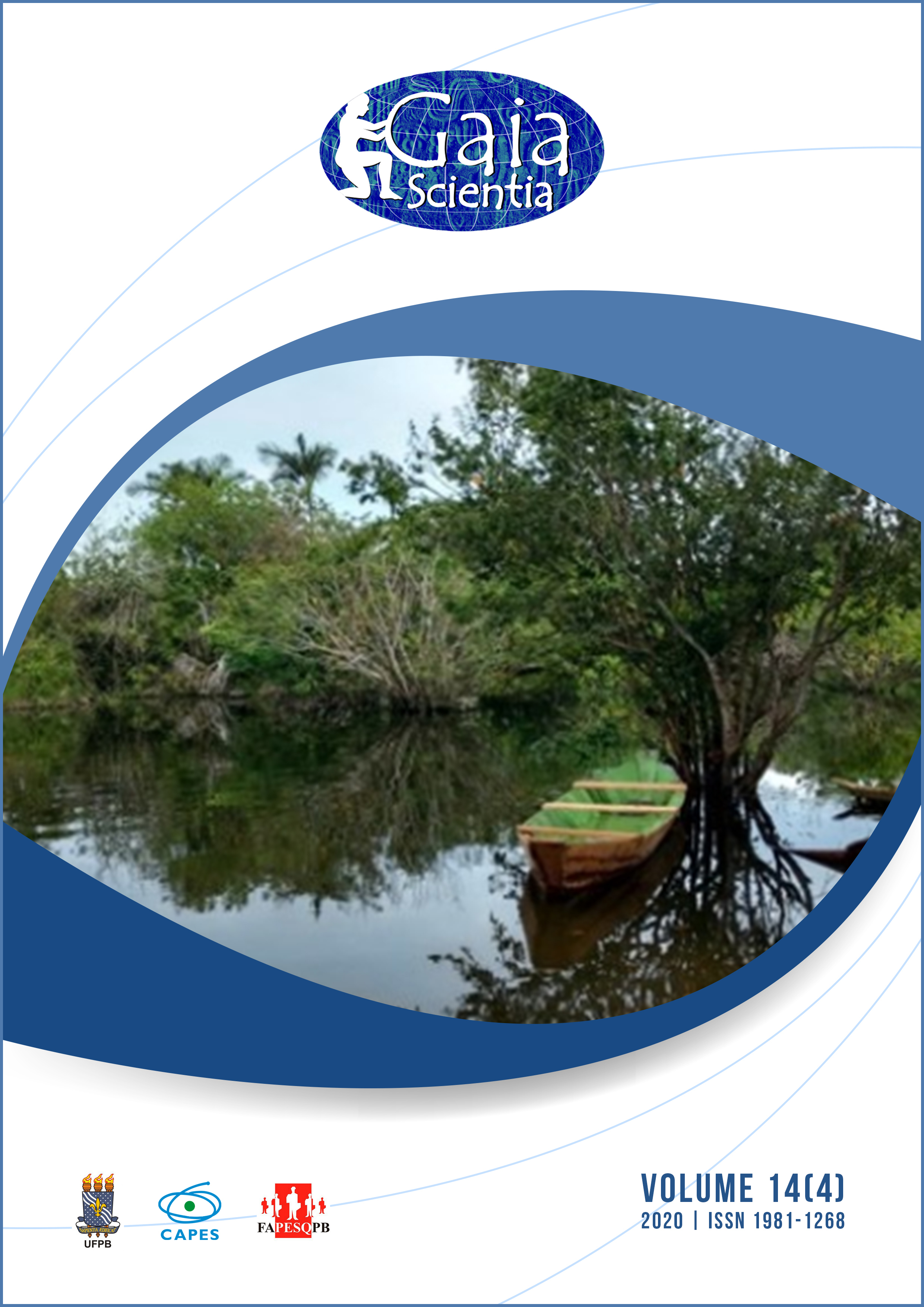Socio-environmental vulnerabilities to urban occupation: an analysis of Blumenau (SC) and Aracaju (SE)
DOI:
https://doi.org/10.22478/ufpb.1981-1268.2020v14n4.56558Abstract
From a socio-environmental standpoint, it is relevant to understand that the issue of excess water in the Vale do Itajaí and in the municipality of Aracaju presents a significant indicator of vulnerability resulting due to landslides and floods in areas of irregular occupation. This study’s aim was to discuss the problem of vulnerability conditions in urban occupation in the Blumenau (SC) and Aracaju (SE) scenarios, respectively, in the South and Northeast regions of Brazil, from a socio-environmental perspective. The methodology contemplated multiple procedures and techniques, from the study on the Vale do Itajaí, which involves technical visits, mapping and survey of qualitative data collection, to the investigation on the Sergipe coast, which involved a risk assessment based on the analysis of the occupation of the waterfront, both sought a geo-ecological assessment of the landscape, in which the composition, structuring, evolution and function of the defined units were analyzed. The main results point to arguments that emphasize that with the growing urban population in these areas, it is important to incorporate knowledge of the risks and vulnerabilities to which the inhabitants are subjected. Mitigation and adaptation measures to these risks, increasing the resilience of the population, are obviously necessary and need to be included in the planning and management of cities. The conclusion is that these measures need to reinforce legitimacy in governance processes through social participation.










